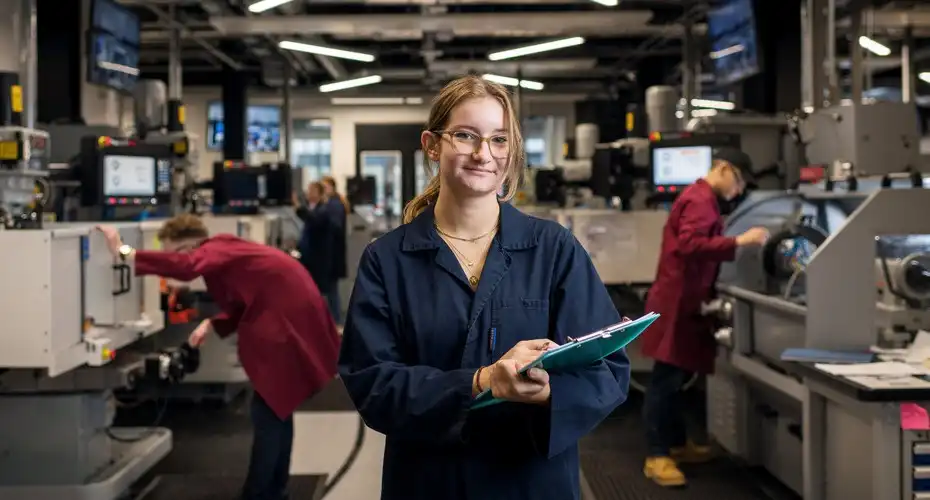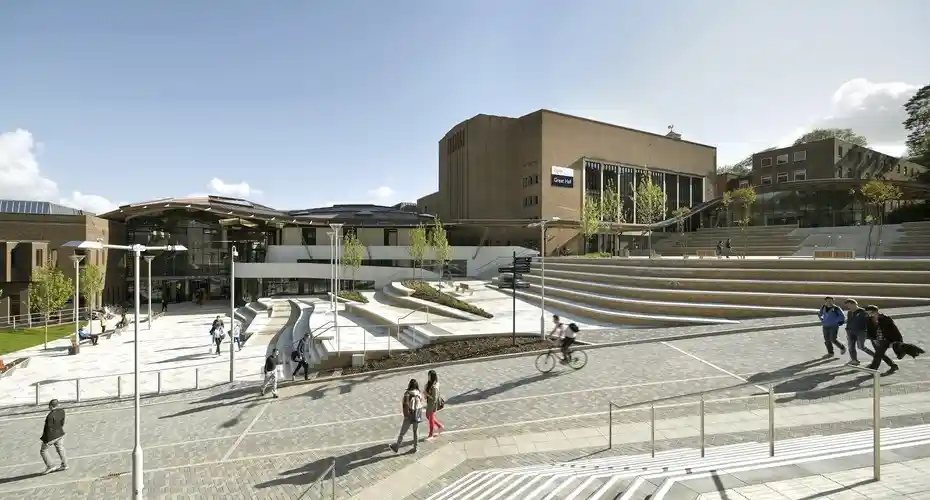| Degrees |
|
|---|---|
| Duration |
| Start date | September, January or April |
|---|---|
| Location | St Luke's Campus |
| Study modes | Full time or Part time |
Overview
As a Postgraduate student in the Department of Health and Care Professions, you will be part of a thriving research community that is committed to developing health and social care professionals at all stages of their career across clinical practice and research. Our high-quality research excellence is supported through interdisciplinary and international collaborations. In all aspects of our research, our projects are underpinned with public and patient involvement.
Research themes:
-
Musculoskeletal
-
Health technologies and artificial intelligence
-
Education and professional practice
-
Aging and long-term conditions
Contact
Phone: 0300 555 6060 (UK)
+44 (0)1392 723044 (non-UK)
Web: Enquire online
Phone: +44 (0)1392 72 72 72
![]()
Ranked 3rd in the UK for Medical Imaging
The Times and Sunday Times Good University Guide 2025
![]()
Major capital investment in new buildings and state-of-the-art facilities
![]()
Top 10 in the UK for our world-leading and internationally excellent Clinical Medicine research
Based on 4* + 3* research in REF 2021
![]()
Vibrant and active research student community supported by excellent pastoral and academic staff
![]()
Ranked 3rd in the UK for Medical Imaging
The Times and Sunday Times Good University Guide 2025
![]()
Major capital investment in new buildings and state-of-the-art facilities
![]()
Top 10 in the UK for our world-leading and internationally excellent Clinical Medicine research
Based on 4* + 3* research in REF 2021
![]()
Vibrant and active research student community supported by excellent pastoral and academic staff
Supervision
You can expect:
- High-quality research supervision to develop and nurture your potential
- A tailored supervision approach to help best suit your requirements
- Accessible supervisors who are enthusiastic about working directly with postgraduate research students
- Regular timetabled meetings with your supervisor
- 'Open door' policy to all postgraduate students - instant access to world-leading researchers who will share their expertise and ideas with you
- Regular meetings with your supervisory team, other members of your research group, and mentors
You will only be able to pursue a research degree with us if we can offer appropriate supervision. Your supervisors will provide the necessary support and guidance and so need to have expertise in your chosen research field. You may join a research team or work with specific members of staff.
You should informally approach your potential supervisor(s) with your research proposal before submitting a formal application to study. This will enable you to find out if they feel they would be able to supervise you and whether they believe your research proposal needs further refinement.
Supervisors
| Supervisor | Title | Research interests |
|---|---|---|
| Prof Karen Knapp | Associate Professor in Musculoskeletal Imaging | Bone health and osteoporosis |
| Dr Jonathan Fulford | ||
| Lecturer in Medical Imaging | Musculoskeletal imaging, Radiology and organ imaging, Rheumatology and arthritis, Pain, Biomedical imaging, Image processing | |
| Dr Hairil Abdul Razak | Senior Lecture | PET/CT imaging technology |
| Dr Fay Manning | ||
| Dr Rob Meertens | Programme Lead for the MSci Medical Imaging | Medical imaging, artificial intelligence, and bone health |
| Dr Noor Shafini Mohammed |
Entry requirements
Applicants will typically hold (or be expected to attain) a 2:1 Honours degree (or equivalent), or an MSc in a related subject.
They would normally have a strong background in the field of study at undergraduate level or an MSc in a related subject that would underpin the knowledge required to conduct independent research as an MPhil/PhD student. This would usually require a good 2:1 BSc degree for UK students
English language requirements
International students need to show they have the required level of English language to study this course. The required test scores for this course fall under Profile E. Please visit our English language requirements page to view the required test scores and equivalencies from your country.
Please visit our English language requirements page to view the required test scores and equivalencies from your country.
How to apply
PhD and Research Programme application process
The information below applies to self-funded PhD, MPhil and Masters by Research applicants, but if you are applying for a funded PhD studentship, please follow the specific instructions related to that application.
- Pinpoint your PhD research area
- Investigate whether this area is available at Exeter
- Ensure that you meet our English language entry requirements (international students only)
- Approach your potential supervisor(s) and confirm that they are willing to support your application
- In consultation with your potential supervisor(s) construct and refine your PhD research proposal
- Apply online
PhD studentships pages can be accessed in our Funding lists on Finance tabs under each research topic page, and are also available from the Postgraduate Research search results pages on this site, on the PhD projects tab.
Full details of the application process can be found on our apply now webpage.
Fees and funding
Tuition fees per year 2025/26
- Home: £4,950 full-time; £pro-rata part-time
- International: £28,600 full-time
For those studying for more than one year, our fees are expected to increase modestly in line with Consumer Price Inflation measured in December each year. More information can be found on our Student Finance webpages.
Tuition fees per year 2024/25
- Home: £4,786 full-time; £pro-rata part-time
- International: £27,500 full-time
For those studying for more than one year, our fees are expected to increase modestly in line with Consumer Price Inflation measured in December each year. More information can be found on our Student Finance webpages.
Our Postgraduate Funding webpage provides links to further information. If you are considering a PhD in the future, in addition to University of Exeter funding, we have been successful at securing postgraduate funding for PhD research through our Funded Centres.
Current available funding
Facilities
The Medical Imaging Centre is a major research facility within the Department of Health and Care Professions. This state-of-the-art facility is located on St Luke’s Campus, University of Exeter, and supports the Faculty of Health and Life Sciences, as well as other Faculties and external users.
We provide both imaging equipment and experienced staff, to assist researchers and students in collaborative and multidisciplinary research by applying clinical and advanced medical imaging techniques to address key questions in clinical research. We have a track record of collaborating with research and industrial partners for facilitating research in these areas.
We also work closely with the Mirielle Gillings Neuroimaging Centre which is based at the nearby Royal Devon and Exeter Hospital site.











